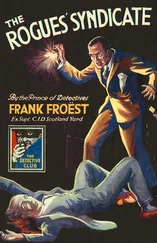'I know. Bizarre, and yet a freak occurrence – or so you might think. But if you add up all the freak occurrences on a global scale, it's clear that shoals of fish have sunk more boats in the past few months than ever before. Some say it's coincidence, that the fish were swimming for their lives. Others look at the same pattern of events and start to see a strategy. We can't exclude the possibility that the fish are allowing themselves to be caught in order to capsize the vessels.'
'That's nonsense!' The Russian diplomat was incredulous. 'Since when have fish been able to plan?'
'Since they started sinking boats,' Peak said curtly. 'They're doing it in the Atlantic right now. In the Pacific, though, they seem to have learned how to dodge nets. We don't have the slightest idea how, but we can only assume that they have made a cognitive leap and suddenly know about drag and seine nets, that they've figured out what nets do . But even supposing something has prompted their mental capacity to develop so quickly, their ability to gauge distance must have improved dramatically too.'
'A net like that measures a hundred and ten by a hundred and forty metres at its mouth. There's no way that a fish, or even a shoal, could detect it.'
'Yet that's precisely what seems to be happening. The fishing flotillas are complaining of drastically reduced catches. The whole food industry is suffering.' Peak cleared his throat. 'I'm sure you've all heard about the second factor in the disappearance of boats and people. It took a while, though, for KH-12 to document an incident.'
ANAWAK STARED at the screen. He knew what was coming. He'd seen the images before – he'd even helped with the data – but his throat constricted every time.
He thought of Susan Stringer.
The pictures had been taken in such quick succession that the sequence unfolded like a film. A sailing yacht of about twelve metres in length was floating on the open water. The wind had dropped, the sea was perfectly smooth, and the sails had been lowered. Two men were sitting aft, while the women lay sunning themselves on the foredeck.
An enormous dark shape passed close to the boat, every detail on the colossal body clearly identifiable. It was an adult humpback. Two more whales followed. Their backs broke the surface of the water, and a man stood up and pointed. The women raised their heads.
'Now,' said Peak.
The whales made another pass, then something appeared in the deep blue water on the portside, rising swiftly to the surface. Another whale. It broke water vertically, shooting upwards, flippers splayed. The people on board turned their heads, transfixed.
The body tilted, then smashed diagonally on to the boat, splitting it in two. Debris whirled through the air and the people shot up like dolls. Anawak saw the mast break. A second whale hurled itself on to the wreck, and pieces of hull floated forlornly in an expanding ring of foaming wash. There was no sign of the people.
'Only a handful of you will have witnessed an attack like this at first hand,' said Peak, 'which is why it was important for the rest to see it now. The danger zone is no longer confined to the American and Canadian coastlines. All but the largest ships have been banished from the waters worldwide.'
Anawak closed his eyes. How would it have looked from space when the DHC-2 collided with the whale? Was there a record of that too? He hadn't dared ask. The idea of a glass eye watching the scene impassively was too awful.
As though he'd heard his thoughts, Peak said, 'This type of documentation may strike you as heartless, ladies and gentleman, but we're not voyeurs. Whenever possible, we tried to help.' He looked up from the screen of his laptop, his eyes expressionless. 'Unfortunately, in cases like these, it's always too late.'
PEAK WAS AWARE that he was skating on thin ice. He'd hinted that they were on the lookout for accidents, which invited the question as to why they hadn't done more to prevent them.
'Suppose we think of the spread of the attacks as a kind of epidemic,' he said, 'then the epidemic must have started in the waters off Vancouver Island. The first reported incidents took place near Tofino. It sounds incredible, I know, but in many cases, strategic alliances were obviously at work. Grey whales, humpbacks and, in some instances, fin, sperm and other large whales attacked the boats, then smaller, faster whales – orcas – took care of the survivors.'
The Norwegian biologist raised his hand. 'What reason do you have to assume that it's an epidemic?'
I'm not saying it is an epidemic, Dr Johanson,' said Peak. I'm saying that it seemed to spread like one. First Tofino, then a few hours later the Baja California, then Alaska in the north.'
I'm not so sure it spread at all.'
'Well, evidently, yes.'
Johanson shook his head. ' Evidently . What I'm getting at is that appearances might lead us to draw the wrong conclusions.'
'Dr Johanson,' Peak said patiently, 'if you could just give me a little more time to-'
'Isn't it conceivable,' Johanson continued, undeterred, 'that we're dealing with a simultaneous outbreak that was imperfectly co-coordinated?'
Peak looked at him. 'Yes,' he said reluctantly.
SHE KNEW IT. Johanson was advancing a theory of his own – much to the chagrin of Peak, who didn't approve of civilians interrupting an officer in uniform.
She watched with amusement.
Crossing her legs, she settled back in her chair and noticed Vanderbilt looking at her questioningly. He obviously assumed that she'd spoken to Johanson in advance. She returned the glance and shook her head, then turned back to Peak.
'We've already established,' Peak was saying, 'that the aggressors are all nonresidents. Resident whales are basically part of the scenery. Transients, on the other hand, either embark on extensive migrations – like the transient humpbacks or greys – or cruise around in the open water, like offshore orcas, for instance. On the basis of all this, we're assuming – tentatively, of course – that the cause for the change in behaviour must lie further away, that is, far out to sea.'
A map of the world appeared, showing places where attacks had been reported. The red shading stretched from Alaska down to Cape Horn, the east and west coasts of Africa and the coastline of Australia. The screen cleared and a new map appeared. Once again, there was coloured hatching around the coastlines.
'The number of sea-dwelling species actively attacking humans has risen across the board. Shark attacks have soared in Australia and South Africa. No one goes swimming or fishing any more. Shark nets usually suffice to keep the creatures out, but now they're in tatters, and there's no dependable evidence as to who or what's to blame. Our electro-optical surveillance systems haven't succeeded in solving the mystery, and we don't have sufficient numbers of dive robots in the third world to be of much use.'
'So you don't think it's just a cluster of coincidences?' asked a German diplomat.
Peak shook his head. 'One of the first things you learn in the navy, sir, is how to assess the danger posed by sharks. They're dangerous, you see, but not always aggressive. And they don't like our flavour. In most cases they'll spit out an arm or a leg.'
'That's all right, then,' muttered Johanson.
'But various shark species have developed a sudden craving for human flesh. In the space of a few weeks, there's been a tenfold rise in attacks. Thousands of blue sharks – an open-water species – have migrated to the shelf. Packs of mako sharks, great whites and hammerheads are hunting together like wolves, descending on coastal areas and inflicting serious damage.'
'Damage?' asked a diplomat, in a thick French accent. I'm not sure I follow. Were people killed?'
Читать дальше












